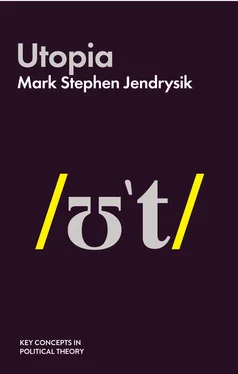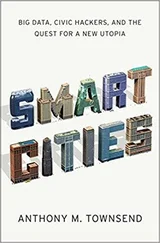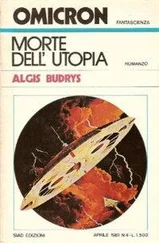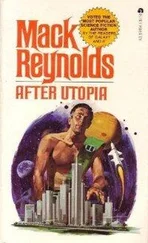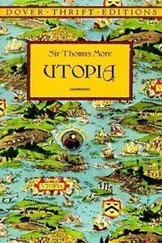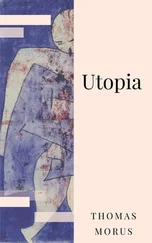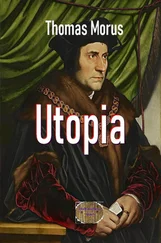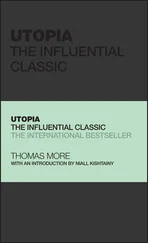If utopian thought seeks to establish freedom, we can also ask, freedom for whom? Freedom has been defined in many ways in utopian thought. For Plato and the ancient Greeks freedom meant the ability of the ruling elite to act as it saw fit. The concerns and desires of the great mass of people were immaterial. Thomas More and Gerrard Winstanley, among others, defined freedom as freedom from want and fear (expressed as having enough to eat and fulfilling work and security). Political freedom as we understand it – the ability to take part in communal decision making and actively consent to the actions of the state – was not of great importance to most classic utopian theorists. Even when they allow for elections and voting, as Edward Bellamy does in Looking Backward (1888), the self-evidently correct and successful principles of the existing society leave scant room for what we would consider political liberty. In light of this history, utopian thought now strives to establish what Erik Olin Wright calls “real freedom,” where “people have actual capacities to make choices that matter to them” and “they have access to the basic resources needed for acting on their actual life plans” (2010: 18–19). In doing so, contemporary utopian thought wrestles with one of the paradoxes inherent in freedom. Establishing equality, and therefore freedom from fear and want, requires limitations on political and economic freedom. Establishing greater political and economic freedom seems to create more inequality and more fear and want.
All utopian dreamers have a theory of human nature at the foundation of their work. They may not explicitly state a theory, but an explanation of human nature will be there. Why? Because you cannot describe, prescribe or critique human social and political relations without some idea of what people are really like, or what people really could be like. Understanding what human beings desire and why they do the things they do are key tasks of any utopian theorist. Perhaps the most obvious human desire is to be able to act freely to achieve self-defined goals. This does not equal advocating socially destructive individualism. But utopian politics must recognize the individual and accept the individual’s agency and value. Abstracting individuals into easily digestible and essentialized groups or symbols must be avoided. If “the citizens of utopia are grasped as a statistical population; there are no individuals any longer” (Jameson 2004: 39). It is all too easy to treat human beings as objects, as mere abstractions, to be moved about like pawns on a chessboard. Great reforms can be imagined more easily if we forget the human cost. It is much easier simply to express contempt and disdain for the “mob” or the “1 percent” than to face the claims of self-directing human beings on a fair and honest basis.
Utopian theory must also face the nature of political power and authority. Power must have purpose. Now, of course, the wielders of power might lie, both to themselves and the objects of their rule, about their real goals. But pure naked cynicism will fail. Those who wield or seek power must tell stories. They must provide a convincing narrative that supports their claims to authority. In the classic utopias this means a fully constructed story of community building, education and maintenance, as first seen in More’s Utopia .
Utopian thought addresses political legitimacy. Authority can be defined as the use of power by particular individuals that is accepted as legitimate by the objects of that power. Because of the general aversion toward politics characteristic of utopian thought, the locus of power in utopia is often obscured or hidden. But any functioning and recognizably human society must have some authority, and that authority must be lodged in individuals, whether singly or in a group. Utopian theorists place the sources of legitimate political authority in various places. Some, such as Plato and More, or Charlotte Perkins Gilman in her classic feminist utopia Herland (1915), believe that the wise must rule. Aldous Huxley parodies this idea in Brave New World (1932), in which he makes his “World Controllers” suffering servants who are burdened with the knowledge of the dangerous truths that support their society. Bellamy makes individual political authority dependent on success in service to society expressed through labor. In Le Guin’s The Dispossessed (1974), authority in an anarchist society comes from public esteem and respect for an individual’s contributions to the common good.
Utopian thought presents a dynamic understanding and analysis of community. As social and political animals we create places where collectively we can pursue our goals (whether defined by the individual, the family, the community or the state). Community must be a place of both conscious and unconscious attachment. Members of any real and healthy community will be able to critically reflect on its values and compare them with those of other communities. Perhaps this sets that bar very high – after all, utopian communities in reality or in thought are often isolated from the rest of the world by distance or ideology. But mindless acceptance of the values of any community suggests those values are dead and fossilized.
Finally, utopian political thought engages and supports a particular idea of progress: the idea human beings can effect changes in the material conditions of their existence and that these changes are good. Utopian thought is fundamentally linked to technological advances that help cause social and economic change. Dystopia (or anti-utopia) appears as a live genre (and political form) when the dangerous effects of technology and expanding state power become evident. Why is this? Because technology allows ideologies to be realized. Changing the world to fit your beliefs is a lot easier when you have modern weapons and up-to-date tools of repression. But dystopia also reflects the fear that our political and social forms can regress and that old practices of oppression will reappear in new and more sinister guises. Commenting on the seemingly outlandish practices in The Handmaid’s Tale (1985), Margaret Atwood said there was nothing new in Gilead’s apparatus of repression, that everything in the book had occurred sometime in human history.
Utopian thought is political. Utopian thought attempts to solve political, social and economic problems. Sometimes this can mean reaching toward an ideal state. Sometimes it can be tethered to current societal conditions and, “by showing how the social world may realize the features of a realistic Utopia, political philosophy provides a long-term goal of political endeavor, and in working toward it gives meaning to what we can do today” (Rawls 2001: 128). Utopian thought is not merely some sort of academic exercise. The great utopian thinkers were politically aware and active men and women. They often risked their lives, livelihoods and reputations to advance the dream of a better world.
Utopia is that part of political thought that sees beyond what is to what could be or, more importantly, what should be. While a realized utopia might seem to have transcended politics, the path to utopia, both in theory and in practice, must negotiate the realities of human interaction, of power and planning, of ruling and being ruled. As Jameson says: “politics is always with us, and is always historical, always in the process of changing, of evolving, of disintegrating and deteriorating” (2004: 44).
But utopian thought can also be anti-political. Some utopian thinking is “based on a desire for the death of politics and the end of history” (Firth 2012: 14). Many utopian theorists sought and perhaps still seek what Thomas Hobbes called a “ Nunc stans ” – a final end point that renders politics, and perhaps even change, unnecessary. Utopia might begin with politics, but utopia seems to seek the end of politics. From Plato to Marx to Bellamy and beyond, utopian thought understands politics as an impediment to attaining justice and equality. A fully realized utopia renders politics unnecessary. As Alan Ryan says, “Plato’s Republic and More’s Utopia paint elaborate pictures of life in utopia but share with Marx the presumption that in the absence of conflicts of material interest, administration will be necessary, but politics will not” (2012: 771, original emphasis). Any examination of utopian political thought must address the clear tension between politics and anti-politics.
Читать дальше
